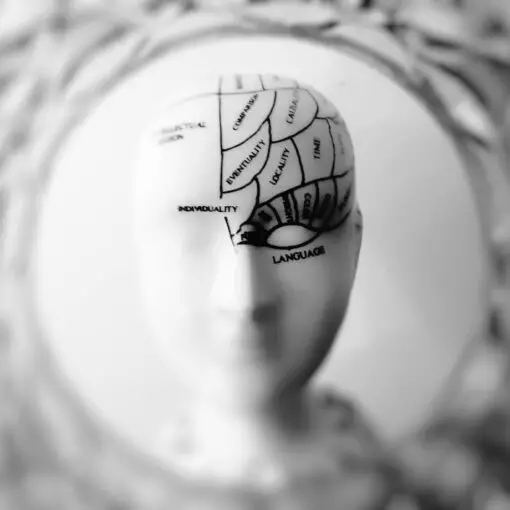Famous highly-intelligent thinkers in the world such as Albert Einstein, Sigmund Freud, and Marie Curie are known not only because of their names, but because of how they shaped their ideas and contributions that made the world a better place. It is important to note that it is not only natural intelligence that makes a person a critical thinker, but also the way they react and interact with others.
Here are the 9 most common traits of a strong critical thinker that you may not know you already possess.
- Curiosity
If you are a strong critical thinker, you are highly curious and interested about many ideas that can potentially contribute to the world that surrounds you. Instead of just observing a thing based on its face value, you are more likely to study and tinker with its origin. It is not enough that you know something about it, you also need to know why it is built the way it is. Even an apple falling from a tree led Sir Isaac Newton to establish the laws of gravity just because he was curious enough to investigate.
- Awareness
If you have highly-critical thinking skills, you are most likely to distinguish a real news from a fake news. Misinformation is the most common mistake that learners make especially in this age of virtual technology, where everything you see can be made believable. However, you will not be tainted by this bait, but rather you will scrutinize every detail that you are given and fact-check its sources. You are not one to be fooled.
- Creativity
Creativity and resourcefulness are the inseparable partners that a mentally-skilled individual are most likely to possess. A critical thinker has a creative side of learning and creating. You will always be up for brainstorming because you want to exchange ideas with other people. You always make it a point to think outside the box. You never stop creating because you are always fascinated with the idea of exploring something new and sharing it with the world.
- Humility
No one is exempted from learning how to be humble in all aspects of life. Because of your mental skills, you are likely to be widely-known. People will always be going to you for help. But you have to know that it is not an excuse to be arrogant if you are a know-it-all. A critical thinker who seems to know a lot of things should be approachable and kind. You should be willing to admit your weaknesses and shortcomings. Consequently, you should also be aware of and recognize your strengths. If you are intellectually humble, you recognize other people’s viewpoints and you will gladly take the challenge of your own, if necessary.
- Open-mindedness
An open-minded critical thinker is one who is welcome to hear all sides of a story. You are an objective listener and a fair teacher to anyone who seeks your intellectual advice. You also avoid biases so that you can analyze the situation more clearly. You make it a point to judge from a viewpoint where you are not emotionally or personally affected. If you possess open-mindedness, the you are a strong critical thinker. Everything that you want to know needs to be factual and free from subjectivity.
- Effective Communicator
If you are a strong critical thinker, then you must be an effective communicator. You relay your thoughts and ideas in a smooth and clear way. You are not usually clouded by unnecessary ideas. You build and express your concepts to others without the fear of being unsure. If you are not yet an effective communicator, then all it takes for you to be a coherent speaker is to allot time to practice.
- Adept Listeners
Even a mentor needs to be the student every once in a while. If you are a critical-thinking individual, then you were once a listener, too. Learning things can be done on your own, but it is better if it is learned from other people based on their personal experiences. You gain knowledge by taking notes and pointers from others. You also actively listen to whatever relevant information that is being given to you in the hopes of inspiring and improving your own.
- Compassionate
There are studies that show strong critical thinkers also have a high emotional quotient. The level of your emotional intelligence is also called “emotional quotient”. If you have been tested and scored with a high emotional quotient, then you are capable of recognizing not only your own but other people’s feelings as well. You are a natural empathizer, and for that, you are usually compassionate. If you are a leader, then you know that your constituents are only human and are capable of making mistakes, so you easily let go of the small slips that they make. After all, you would know that mistakes are a vital part of learning.
- Self-Confident
There is a big gap between arrogance and self-confidence. An arrogant person will bring others down to achieve a personal goal. They are more likely to compare themselves to others and find pleasure in being superior to others. They also tend to put the blame on other people if the things do not work out the way they expected it to be. Overconfident people will expect success immediately but never balance out the risks. If you are a true self-confident critical thinker, you are not clouded by the thought of you being on the ‘top’. You will see self-confidence as an asset to bring your beliefs and ideas out to the world, whilst also being dependable. You are rarely to be seen lecturing and pointing out other people’s mistakes but rather you would influence them to become a better version of themselves.
Do you see yourself in these qualities of a strong critical thinker? Or do you already demonstrate one or two? If you possess any of these characteristics, you are a critical thinker. What you can do now is to continue learning and improving.





